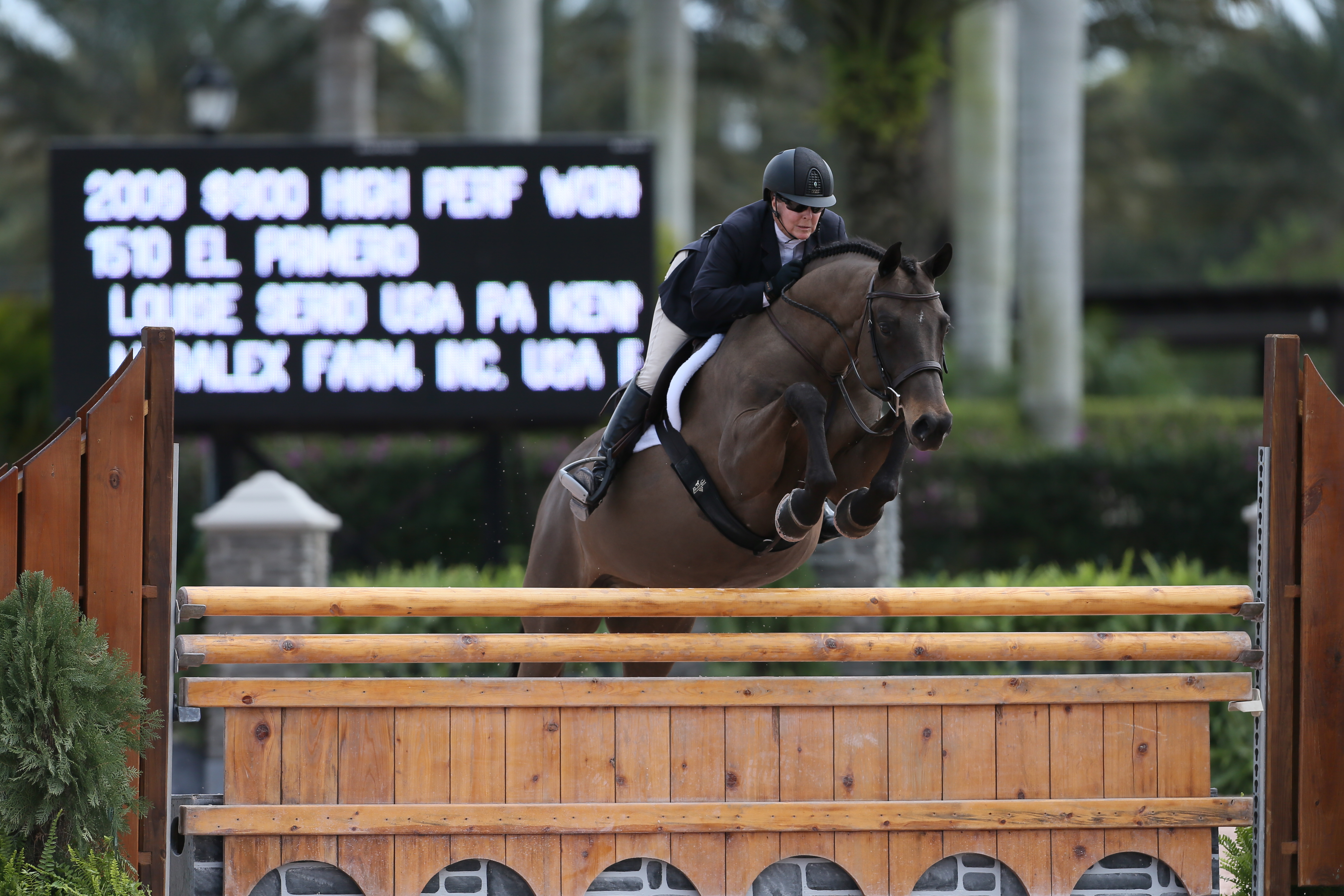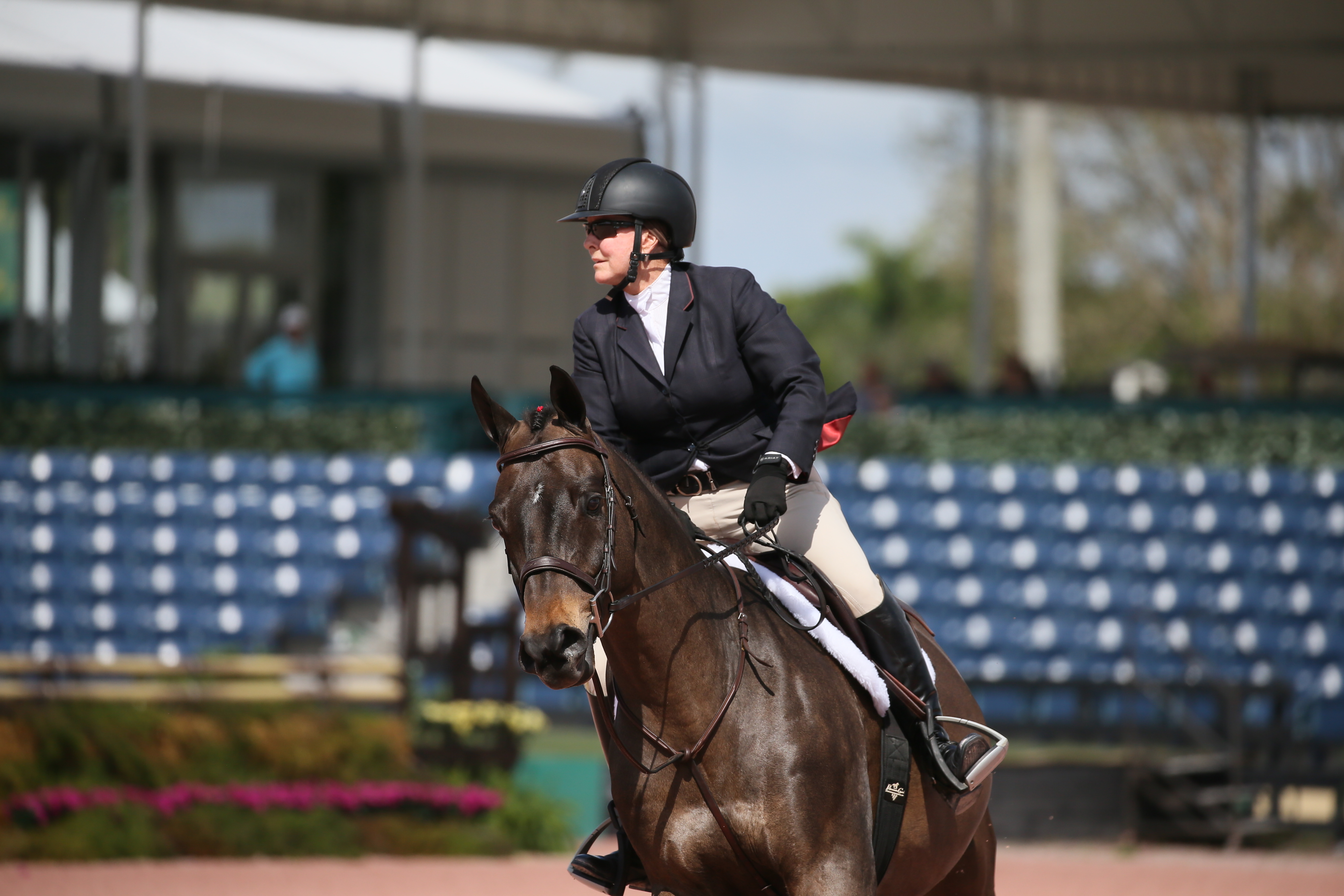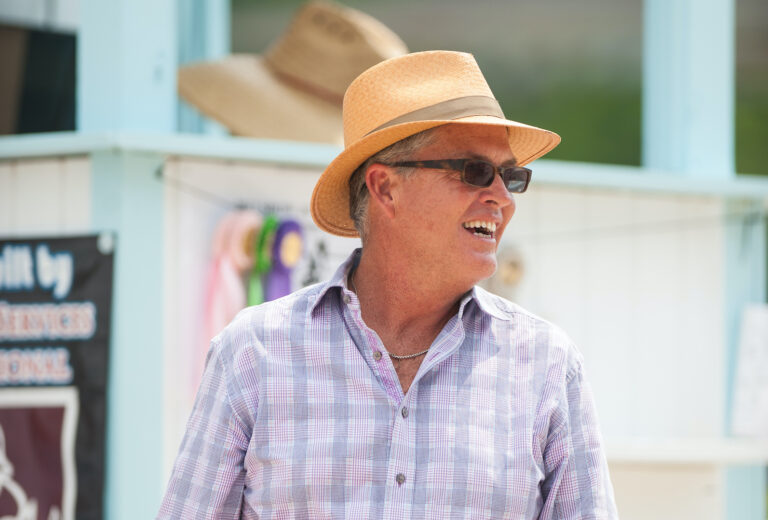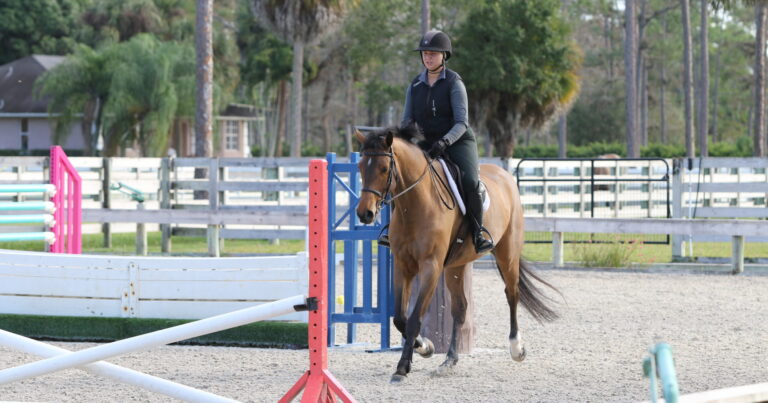
Tricia Conahan: What do you love about this sport?
Louise Serio: I like the continual education that you get—you can never just rest on your laurels. You always have to watch and learn from other professionals and acknowledge their skills and abilities. And each horse keeps you going. Figuring horses out, what they like, what they don’t like—that’s what it is all about.
To what do you attribute your decades of success?
I have been able to run a very honest business, and my clients have appreciated that. My riding skills are good. And I think that my horsemanship skills and my background—what I learned growing up—have helped me long term. I am always amazed at how so many things in the Pony Club Manual are useful today.
When you turned professional, what surprised you?
I realized that every horse you get on, whether he’s easy or difficult, you have to somehow learn to produce good rides. And that teaches you to ride each horse differently. Analyze that ride as quickly as you can. When you are young, you don’t really realize this when you see Scott (Stewart) or Peter (Pletcher) or Liza (Boyd) lay down ride after ride on different horses. It often take patience and feel and the ability to evaluate a horse quickly.
What was it like when you started your business?
I was a single mother trying to support my family. I didn’t know anything else but riding. It was a pretty stressful time, but I just put one foot in front of the other. When you get a little success, you just continue down that path.
What would you tell younger professionals?
I never went to college, and when I first started I didn’t have business skills. I didn’t understand budgets or overspending. At one point, I had to sell my horse trailer and some jewelry just to keep my business going. So go to college and learn about business and financial planning.
What is the most important quality for a good rider?
A lot about riding, in any discipline, is being able to feel how the horse is responding to what you are asking. Then modify it or continue it if it is working. I also think horses like consistency. When they go in the ring, if it’s familiar and the rider is consistent with her aids and what she is asking for, they tend to relax and like their jobs.
You are very competitive. How do you handle losing?
I am way more emotional about losing than I am about winning. Winning is a tremendous reward. It is awesome and it’s what we strive for. You always learn something from losing, but it is hard because you can spin anything out of control. At least in my mind you can think, You are too old, too fat, you are too this, too that. But you just get on the next horse and pull yourself together. And maybe do a better job.
How do you coach riders who don’t have natural “feel” for the horse?
Most of the time the riders who are struggling are more worried about themselves and can’t transfer their focus to the horses. You have to be able to have the equitation and riding style that allows you to focus on the horse. When you are not worrying any more about having your heels down and your eyes up, when you are consistently in a good riding position yourself, then you can begin to feel what the horse is doing.
I tell my students to watch the riders at the top of the sport: McLain Ward, Beezie Madden and others. They learned the basics, they use the basics and they never have to think about it. They can focus entirely on their horses. They are all terrific role models.
See also: Charlie Jayne – Watch and Learn
How do you coach young riders who struggle with the pressure to perform?
I tell them what I say to myself: Your life is not going to change if you win or lose. Everyone has seen you make mistakes and they have seen you do well. I also remind them that our sport is based on this living, breathing thing. Horses can spook or not jump well or maybe it is just not their day. They can’t rise to the occasion every day.
Who do you admire, outside of riding?
I admire the women in politics. They have such a hard role. Barbara Bush recently died, and she was an amazing role model. Women like that have a history of strength and honesty and family.
What is the most important thing you’ve learned during your career?
To be honest with yourself and your clients and your family.
What do you consider a failure?
One of the biggest failures is losing a client. That is like getting a divorce. It is very emotional, very difficult and it can really shatter your confidence. As a professional, sometimes no matter how hard we try, we are not compatible with a client’s personality. I don’t know one professional who doesn’t have anxiety over pleasing his or
her clients.
What are some challenges that young professionals in the business might face?
There are a lot of situations in our business where there is temptation. For example, double-dipping on commissions where the horse dealer gets a commission from both the seller and buyer of the horse. You just have to stay strong, not go with temptation and know that if you are honest and do the right thing, it all works out.
How does it feel being an older professional competing on the circuit?
There is an advantage to being older—you can talk yourself off the ledge. You can figure things out. You know the business cycles, and you know you will be up and down. But when I am at the in-gate and I am with Liza (Boyd) and Scott (Stewart) and some of the younger generation of riders, I feel like I am their age.
You have been riding for over 60 years. How are you holding up physically?
I have always been healthy, but I now have a bad back from a lot of riding and a lot of concussion. And I have been up and down in my weight for years and years. My doctor says I have the metabolism of a small pony with Cushing’s. It is just total depravation for me to lose weight, and as I get older it just gets more difficult to manage all the time.
It is hard when you have to put your riding breeches on and they don’t look good. But you can carry extra weight if you stay fit and stay balanced. For sure I have that. If you can’t be thin, then it is about balance and control and staying out of your horse’s way.

What do you regret?
I regret having to spend so much time away from my children to do my business. I was fortunate that we all lived on the same farm. My children had bedrooms in my mother’s house and they spent time with her when I went on the road.
They are older now, but I still wish I could spend more time at home. In our world now, unless you are showing, you are not making money. What it costs to keep a small business going is crazy. You have to think about the labor, the workers’ comp, the insurance, etc. So each business has its own breaking point of the number of horses needed to keep the lights on in the barn. And the professionals can barely keep their own young horses now because the costs of campaigning them is outrageous.
Do you have any hobbies?
My granddaughter Mary is my hobby. She is turning 10. She is a wonderful student and loves school. She rides both English and Western. We all hang out on the same farm together when I am home and I am grateful that she likes to be with me.
Is there a particular saying that speaks to you?
I say to myself all the time, “Let’s go to work.” Get up and get going—produce something. Try and do something every day. Whether it is weeding a garden or making a horse go better or giving a student a good lesson. Go to work.
What has been one of the best moments of your career?
There have been a lot of good highlights. If winning is a highlight, then winning the World Champion Hunter Rider two times was pretty great. But what makes me happiest is when I have produced a good horse for a good client, and we have had some good success together.
About Louise Serio

For Louise Serio, an early start in Pony Club framed her approach to horsemanship and became the basis for a decades-long career as a top circuit rider and trainer. She grew up on a farm with horses and ponies. Her mother, Mary Warner Brown, founded the Hillendale Pony Club in Kennett Square, Pennsylvania, built the first indoor ring in the area, taught legions of young riders and was a constant inspiration to her daughters. Mary taught Louise to ride based on classic training from legendary horsemen such as Capt. Vladimir Littauer, a proponent of forward riding in America.
At the age of 30, Louise started her own business. She went on to become a two-time winner of the World Champion Hunter Rider competition. She rides and trains champions in every division at major East Coast horse shows, is a respected hunter judge and was helped found the American Hunter Jumper Foundation and the WCHR program. In 2012, she was inducted into the National Show Hunter Hall of Fame.
Horses continue to be a family business. Louise lives at her “family compound” at Derbydown stables in Kennett Square. Her daughter, Chrissy, is a riding professional and her son, TR, is a farrier.
This story was published as part of The Ride of Your Life series in Practical Horseman in December 2018.










